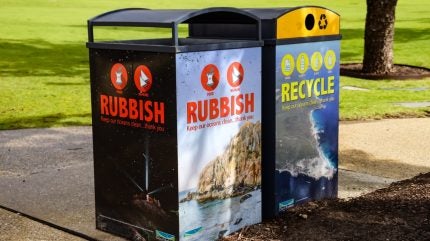
A new industry-led soft plastics recycling scheme is gearing up to replace Australia’s failed REDcycle programme, aiming to revive collection, reduce waste to landfill and impose a levy on manufacturers.
If approved, costs may be passed partly to consumers.

Discover B2B Marketing That Performs
Combine business intelligence and editorial excellence to reach engaged professionals across 36 leading media platforms.
- The Australian Competition and Consumer Commission (ACCC) has proposed granting authorisation to a voluntary scheme run by Soft Plastics Stewardship Australia (SPSA).
- Large supermarket groups (Coles, Woolworths, Aldi) and manufacturers (Nestlé, Mars, McCormick) are initial founding participants.
- The scheme would be funded via a levy on soft plastic packaging (initially AUD 160/tonne, rising to AUD 200/tonne) charged to participating producers or retailers.
- Collection trials are underway in supermarkets and via kerbside bins in some local councils.
- Critics warn the scheme is voluntary, may push costs to consumers, and starts with limited recycling and processing capacity.
- REDcycle collapsed in late 2022, leaving an estimated 11,000 tonnes of soft plastic waste stockpiled and unprocessed.
Why a new scheme is needed
The previous REDcycle system, launched in 2010, allowed consumers to drop off soft or “scrunchable” plastic packaging at supermarkets.
Over time it became clear that much of the collected material was stockpiled rather than recycled. A fire at a recycling facility and breakdowns in the supply chain worsened the situation.
By the time REDcycle declared insolvency in early 2023, tens of thousands of tonnes of soft plastics were sitting in warehouses across Australia.
That collapse left consumers and local councils without a practical nationwide route to recycle soft plastics—such as bread bags, snack wrappers and cling film—leading to much of that waste going to landfill.

US Tariffs are shifting - will you react or anticipate?
Don’t let policy changes catch you off guard. Stay proactive with real-time data and expert analysis.
By GlobalDataHow the new scheme is intended to work
The proposed SPSA scheme aims to broaden collection, sorting and recycling of soft plastic packaging.
Under the plan, participating companies would pay a levy based on the tonnage of soft plastic they place on the market. That revenue would fund collection, processing and associated infrastructure.
Initial levies are proposed at AUD 160 per tonne, increasing to AUD 200 per tonne by mid-2026, with annual reviews thereafter.
The ACCC has suggested an eight-year authorisation for the scheme, under conditions including transparency and no exclusive contracts with processors.
On the collection side, supermarket drop-off points are being expanded—roughly 500 Coles, Aldi and Woolworths stores in New South Wales and Victoria have begun accepting soft plastics from customers.
Kerbside trials in selected councils are also underway, where residents can place scrunched soft plastics into authorised bins. Collected material is processed by local recyclers through mechanical methods (shredding, melting) into lower-grade recycled products (e.g. for asphalt, benches).
Challenges, risks and critiques
The biggest risk lies in scale: current recycling capacity is limited, and the scheme will begin modestly to avoid overcollection. At present only a small fraction of Australia’s 538,000 tonnes of annual soft plastic use is recovered—estimates put recycled rates as low as 6 %.
Because the scheme is voluntary, companies might opt out and shift costs to consumers via higher packaging or product prices.
Critics warn of greenwashing—giving the impression of environmental responsibility without achieving significant results. Also, recycled soft plastics initially will not be reused for food-grade packaging, limiting circular outcomes.
Some observers argue mandating participation (rather than voluntary) would be more effective to prevent free-riders and ensure coverage across all regions.
What this means
If authorised, the new soft plastics recycling scheme could revive soft plastic collection infrastructure in Australia and divert waste away from landfill—but success depends on broad participation, expanded processing capacity and strong demand for recycled materials.
At present, many details remain in flux, including final levy levels, regional rollout, compliance monitoring and the pace of scaling up.





